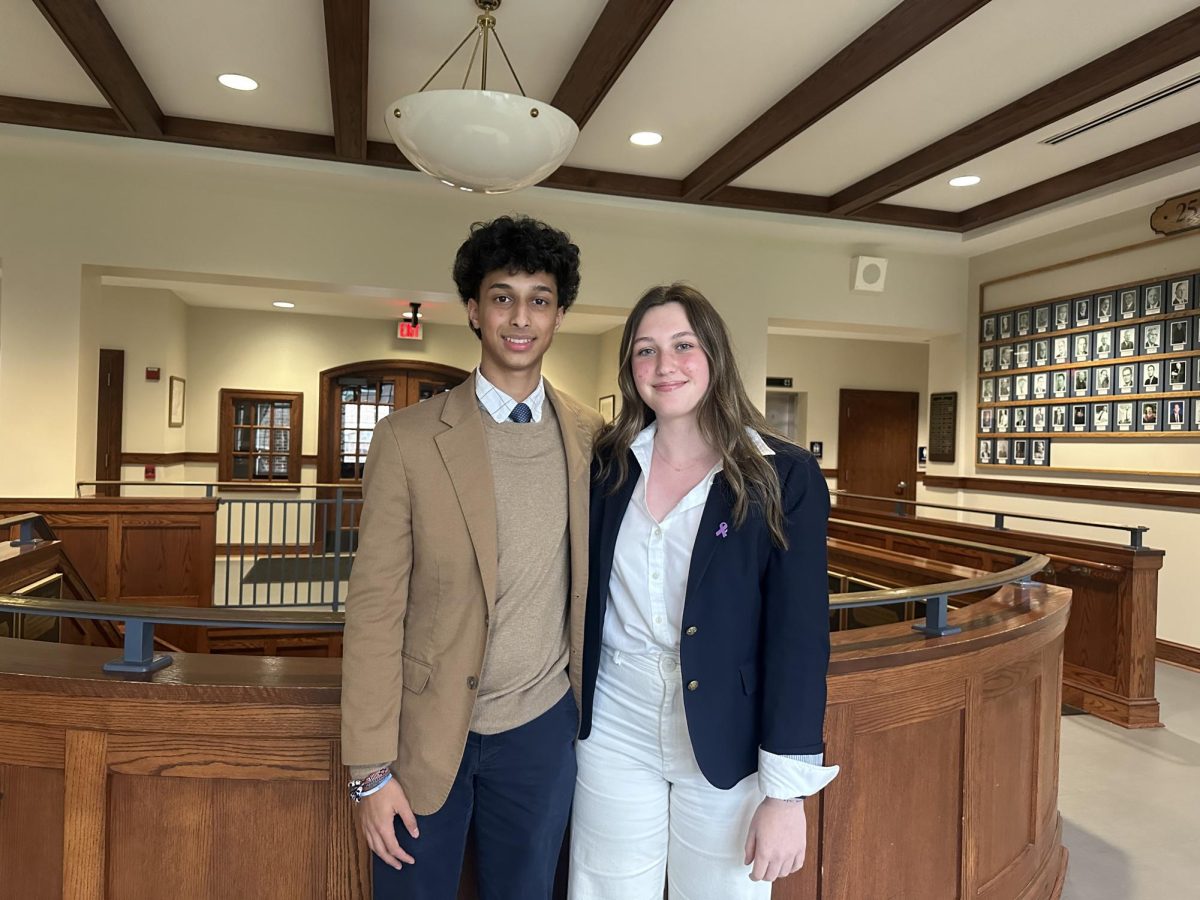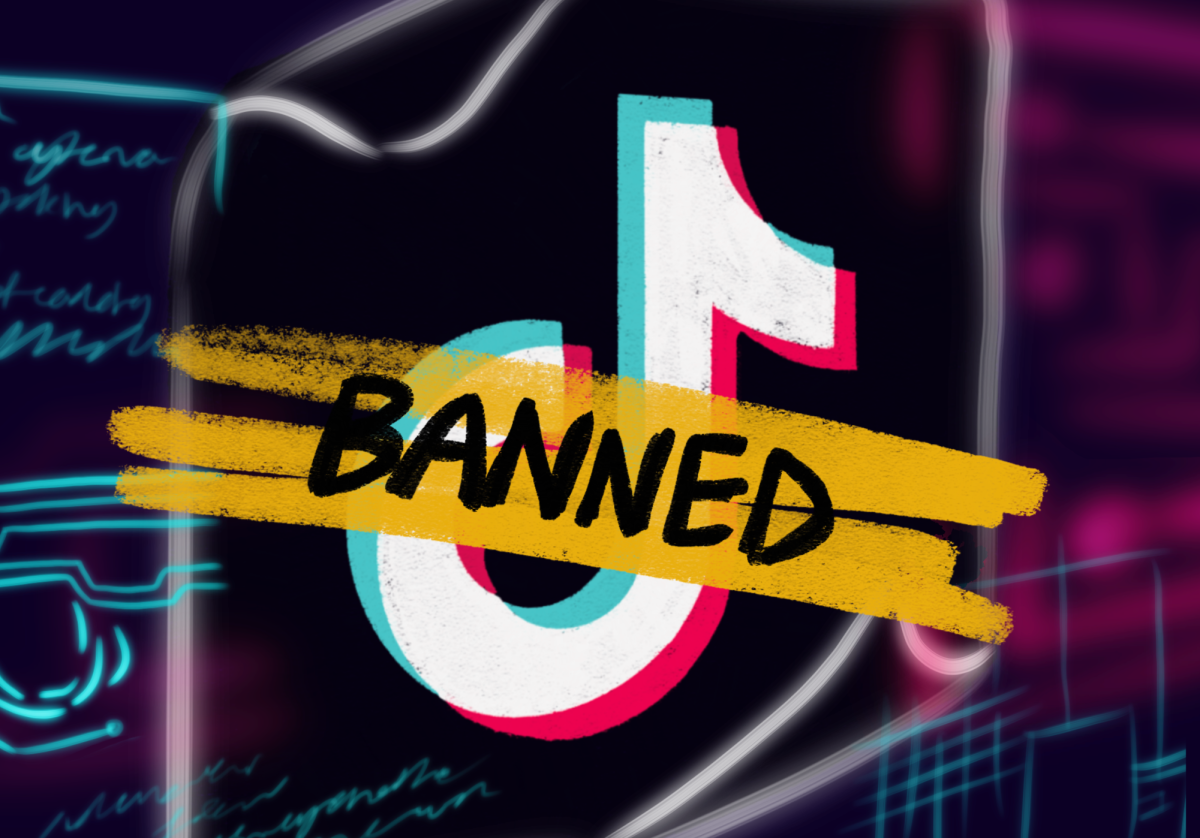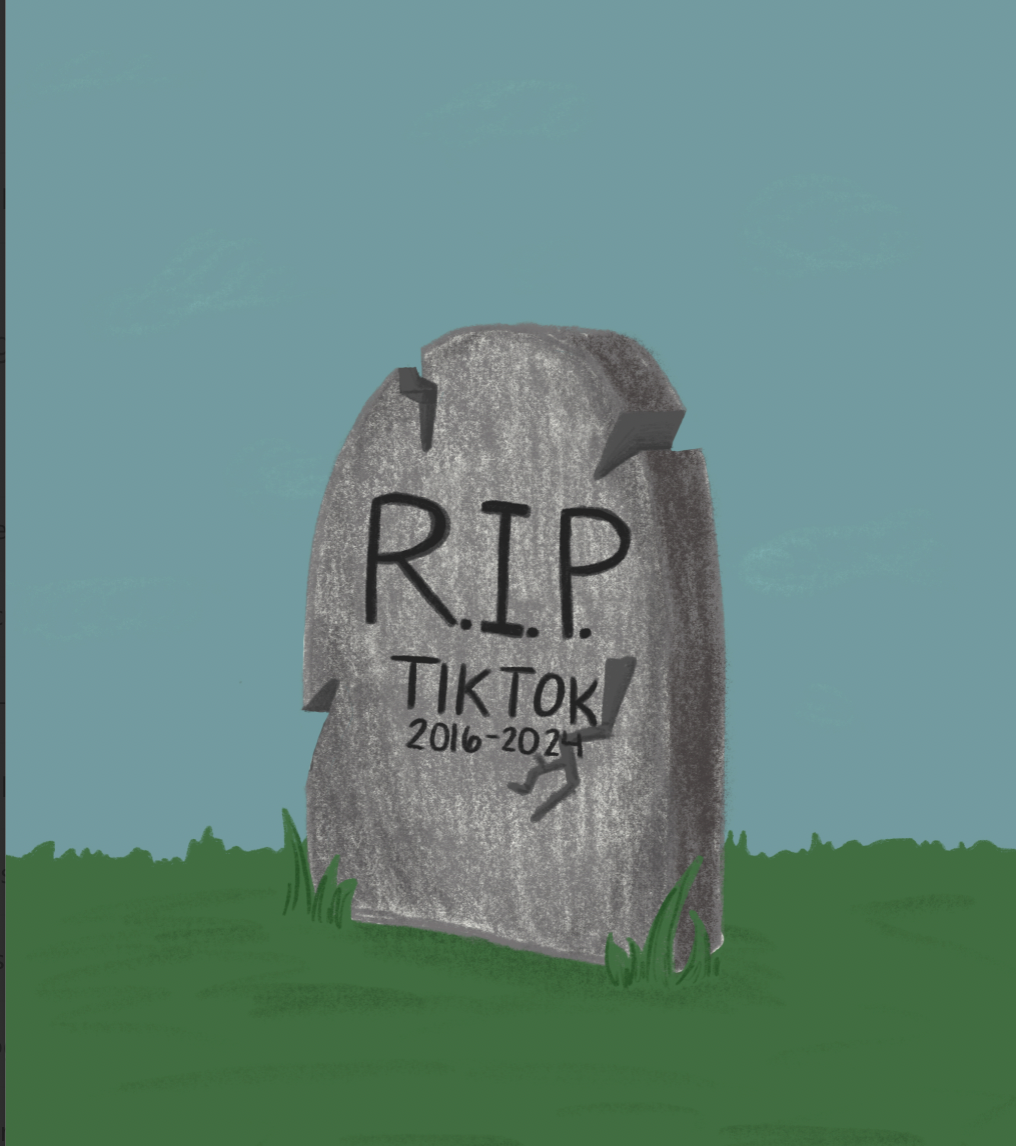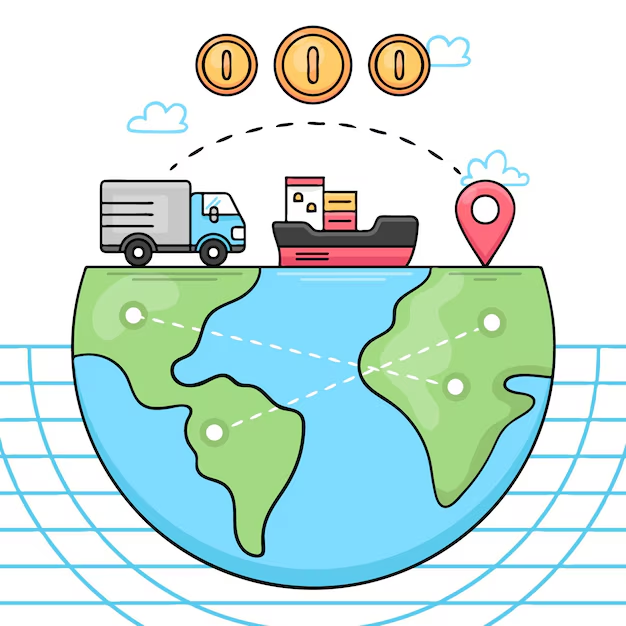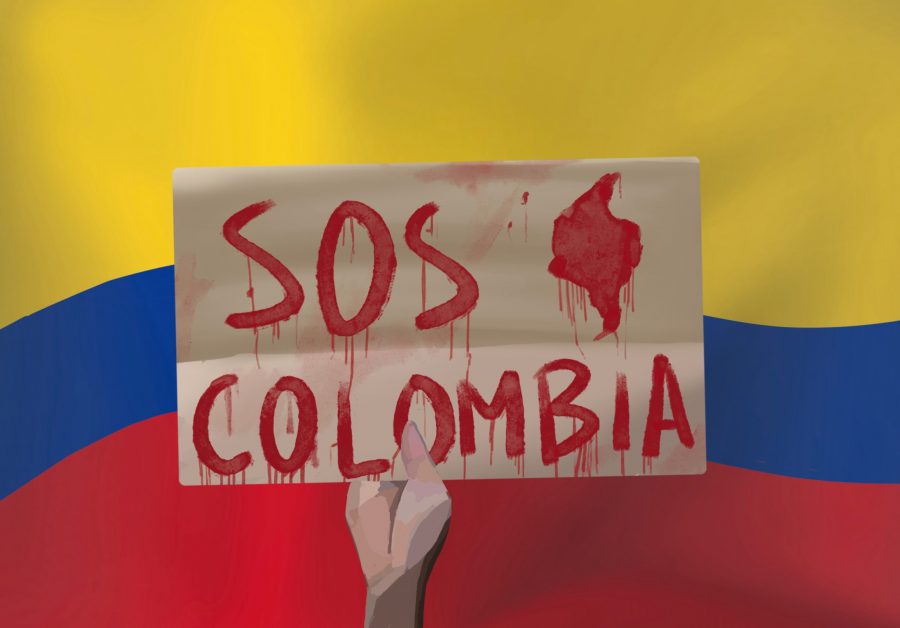Disadvantaged Colombians take the streets to protest corruption
Media: Aidan Ma ’23
Illustration by Aidan Ma ’23
At the beginning of the spring of this year, outraged by the president’s new tax reform proposal, Colombians took over the streets with protests and marches to express their disapproval of the current government. The form that the protests took is known as “paro” which translates to “stop.” It involves labor unions and communities, like students and industries, stopping their usual activities/work and marching to request change. The “paro” creates economic and social unrest, which, if the government decides to ignore, can create long-lasting consequences. However, the protests this year had much more participants than any previous one, finally reaching the attention of international media. Every major city had thousands of protesters from different social classes, backgrounds, and interests. The impact of the “paro” reached every part of Colombian’s life, creating months of uncertainty and fear of the danger generated by the clash between cops and protesters. The situation furthered the already strong polarization Colombia suffers, perfectly delimiting two groups against each other: anti-protesters/government vs. protesters/opposition.
The economic impact of the protests completely shocked industries through the takeover of highways or the destruction of transportation, stores, and warehouses, without even mentioning the consumer slowdown due to the panic. For the latter and social issues regarding the disrespect of authority, many people, especially from privileged backgrounds, were heavily against the protests. Although their arguments are validated by some of the actions performed in the “paro,” such as the destruction of public and private property, the economic unrest, and the violence, most of the anti-protest groups are motivated by maintaining the status quo as it is. In the same way, there are no limits those groups are willing to cross for their own interests. In Cali, amidst the wave of marches, many citizens decided it was up to them to stop the situation and used their guns to shoot protesters, more specifically, indigenous tribes who came from their reserves. Inhumane acts were not only perpetrated by particulars but also by the government to de-escalate the “paro.” Policemen infiltrated marches to incriminate and invalidate the protests. Policemen infiltrated the marches to incriminate and question their validity. 80 protesters were killed, and impunity was common in most of the cases.
It would be biased to portray the actions of the state without also referring to the downsides of the protests. The “paro,” although it starts with a fair reason, is taken advantage of by criminals to steal, destroy, and create further unnecessary unrest and violence. Some examples among many are: the destruction of public transportation, the looting of stores and homes, and vandalization. In the same way, the opposition has also been found committing illicit acts, like paying citizens to commit crimes to trigger more agitation. Nonetheless, the destruction and economical stop the protests legally bring about may also seem counterproductive as it generates more problems for the state to fix. However, without that pressure, there are few motivations for the government to make changes happen. It is considered a necessary evil. Some people ask me why the protesters want to see the world on fire – the truth is that their own world is on fire. The people protest because they are denied their human rights, a decent salary, affordable healthcare, security, and the opportunities to provide themselves and their families a worthy life.
When I talked about the importance of the right to protest in Colombia with Horacio Serpa, a Colombian senator from the Liberal Party, he said (the quote is translated from Spanish), “The protest is, in itself, one of the largest social and democratic expressions envisaged by our constitutional legal system. Unfortunately in Colombia we have not been able to understand the importance and essence of this right, many times stigmatized, other times abused.”
In the past two decades, a new reality has stricken almost every Colombian citizen: change is necessary. Famine kills thousands a year. New generations are forced into working inside the same cycles of poverty. The wealth gap increases exponentially year after year. Government corruption continues to steal millions of dollars from the people. Both Locke and Rousseau assured that the government was for the people, instead of its own Kafkaesque entity, and that the people have the right to protest when the government fails to provide worthy lives. That right is the reason why protests have happened and will continue to happen until the necessary change occurs. However, the infamous ”paro” has to change its customs. Illicit acts can’t be a part of the protests for them to have a long-lasting impact. Nevertheless, the fact that the protests require change does not invalidate its purposes, which is what the government did. A few weeks after the protests died down, a similar tax reform was sent to congress for approval. The situation hints at a severely rare characteristic of the human psyche: humans tend to deem an action as wrong if it is performed poorly, and it is one of the biggest tools to invalidate and oppress.



